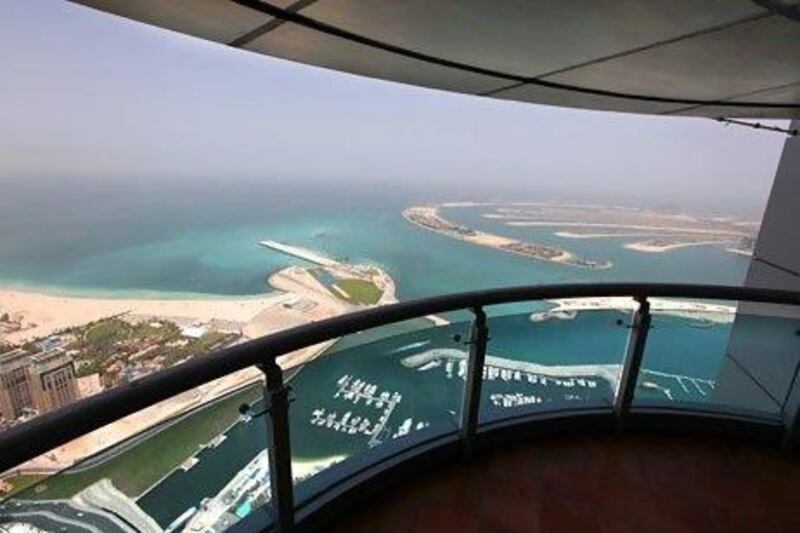Rents in the choicest parts of Dubai rose by more than 3 per cent during the first six months of the year as the city benefited from an increase in corporate demand and an economic revival.
According to the property adviser Knight Frank's latest Prime Global Rental Index, published last week, tenants who signed up to rent in Dubai's most prime neighbourhoods were paying 2 per cent more in June this year than in March. Over the entire year from June 2011, Knight Frank said that rents in those same neighbourhoods also rose by 3.3 per cent.
Overall, Dubai's top neighbourhoods were ranked ninth out of the 16 cities the company surveyed in terms of rent increases, recording higher prime residential rent rises than well-heeled parts of Singapore, Geneva, London, Hong Kong and Moscow.
Knight Frank, which bases the index on the 5 per cent most expensive rents in the housing market in each city, said that at the top end of the world's rental markets, corporate demand was becoming increasingly influential, accounting for up to 85 per cent of prime rental demand in some cities.
It added that, according to the survey, prime properties in emerging markets recorded stronger rental growth over the year than those in Europe or North America.
According to the research, upscale parts of Nairobi, Tel Aviv and Guangzhou recorded the highest rent increases over the past year.
The agent found that prime rents in Nairobi rose the most out of the cities surveyed, recording a 17.2 per cent increase over the year from June last year to June this year and an 11.1 per cent increase over the first six months of 2012.
At the other end of the table, prime rents in Bahrain's capital, Manama, fell by 18.1 per cent in the year to June as political protests took their toll on the economy. Prime rents in Europe rose by just 0.5 per cent in the 12 months to June because of sluggish employment markets.
"Future rental growth is likely to be focused on the world's developing markets as business globalisation increases," said Kate Everett-Allen, an associate partner with Knight Frank's international residential research team.
"In sharp contrast to many western economies, many emerging economies are forecast to see chunky GDP growth in 2012, due in large part to a surge in foreign investment. Corporate demand, particularly in the world's emerging markets, is driving rents higher, helping to offset Europe's fragility."
Overall Knight Frank said that prime rents in the cities it analysed worldwide rose by an average 2.3 per cent in the year to June.
It added that the index now stands 12 per cent above the recession low in the second quarter of 2009 but remains way off the double-digit growth reached before 2008.





